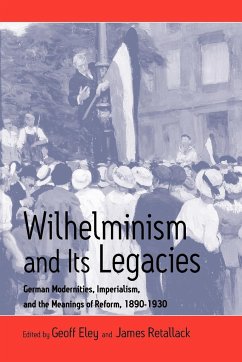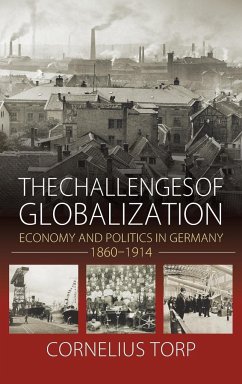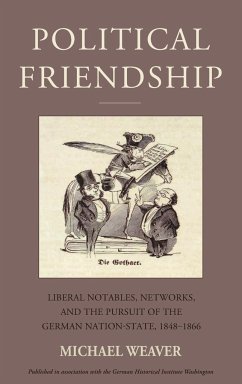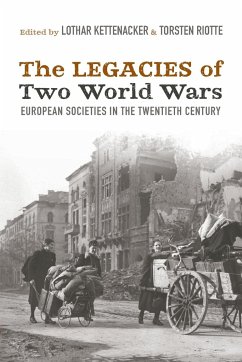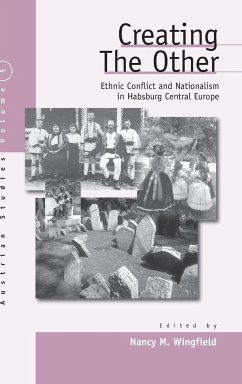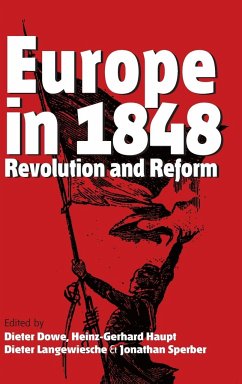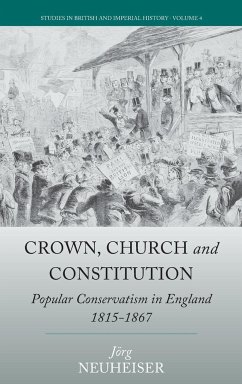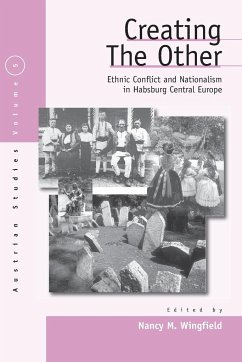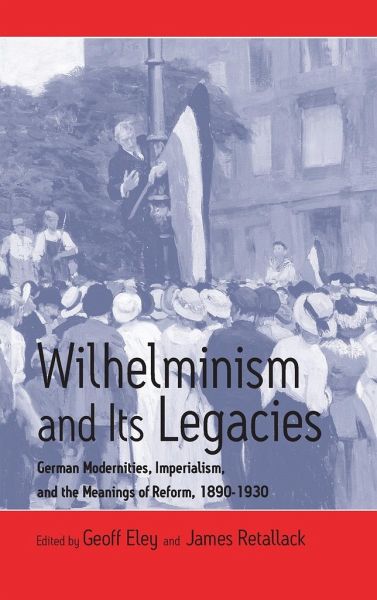
Wilhelminism and Its Legacies
German Modernities, Imperialism, and the Meanings of Reform, 1890-1930
Herausgeber: Eley, Geoff; Retallack, James
Versandkostenfrei!
Versandfertig in 1-2 Wochen
133,99 €
inkl. MwSt.

PAYBACK Punkte
67 °P sammeln!
What was distinctive-and distinctively "modern"-about German society and politics in the age of Kaiser Wilhelm II? In addressing this question, these essays assemble cutting-edge research by fourteen international scholars. Based on evidence of an explicit and self-confidently "bourgeois" formation in German public culture, the contributors suggest new ways of interpreting its reformist potential and advance alternative readings of German political history before 1914. While proposing a more measured understanding of Wilhelmine Germany's extraordinarily dynamic society, they also grapple with ...
What was distinctive-and distinctively "modern"-about German society and politics in the age of Kaiser Wilhelm II? In addressing this question, these essays assemble cutting-edge research by fourteen international scholars. Based on evidence of an explicit and self-confidently "bourgeois" formation in German public culture, the contributors suggest new ways of interpreting its reformist potential and advance alternative readings of German political history before 1914. While proposing a more measured understanding of Wilhelmine Germany's extraordinarily dynamic society, they also grapple with the ambivalent, cross-cutting nature of German "modernities" and reassess their impact on long-term developments running through the Wilhelmine age.



